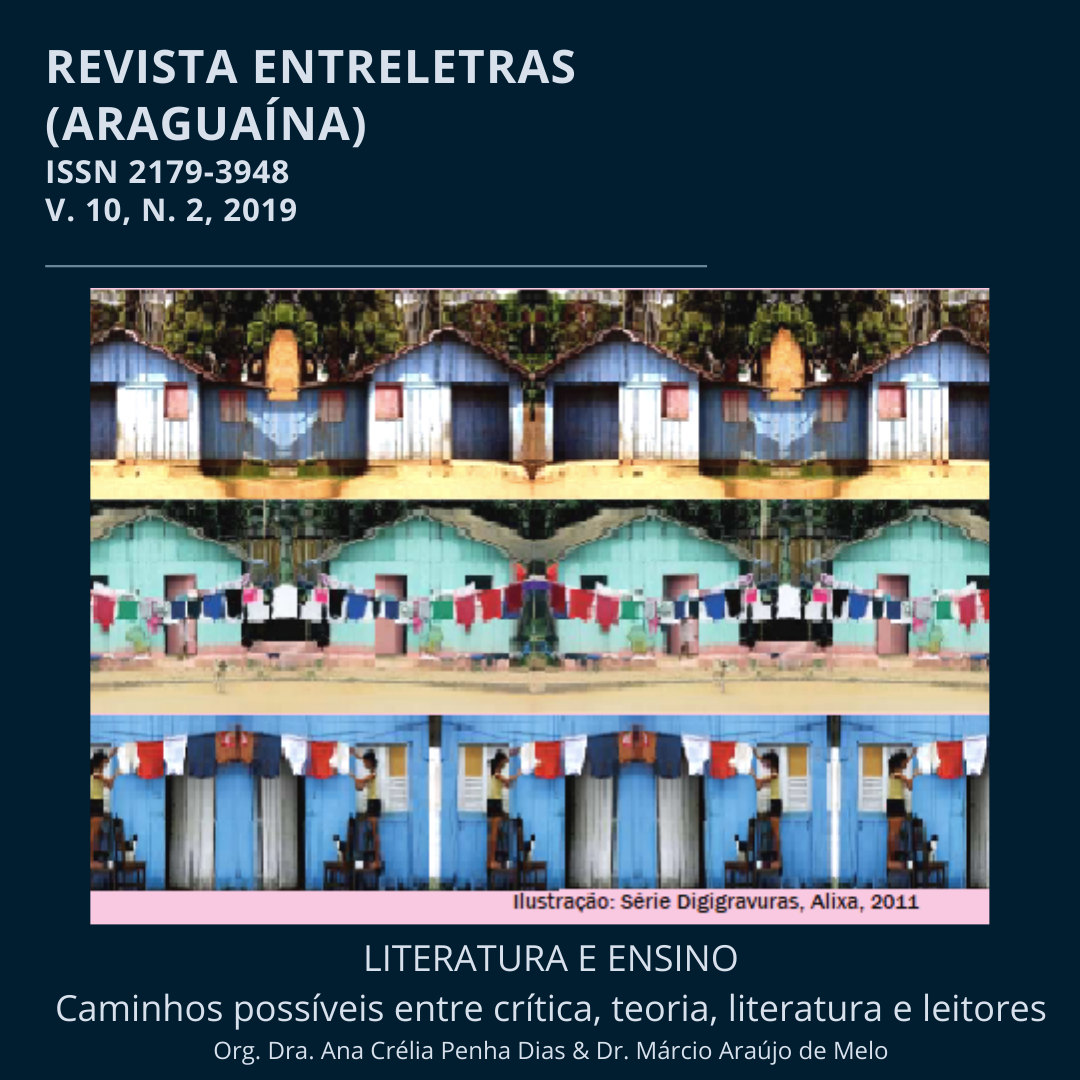PORQUE EL MUNDO ES POSIBLE:
LA BATALLA DEL LENGUAJE EN LAS SOCIEDADES GLOBALIZADAS
DOI:
https://doi.org/10.20873/uft.2179-3948.2019v10n2p333Palabras clave:
sociedades mundializadas, batalha de linguagem, dicção contemporânea, infinito humanoResumen
The central premise of this work can be stated thus: all social transformation acts on language; every change of language interferes in the social relations. The language, specifically with regard to intellectual and pedagogical work, narrowly focused on the three central components - reading, writing and the development of reasoning - expresses and constitutes the time, the time that constitutes it. The central question is to evaluate how, within and outside school, the battle of language as a battle of life is affected by the structure of globalized societies. Laboratory, esoteric, metaphysical, ironic, militarized sayings win the scene of this time, generate perplexities and challenge those who consider the precepts of freedom, autonomy and ethical integrity of values to fertilize human relations. This challenge finds in the language itself the infinite and open dimension; it is the possible human. The symbolic infinity is the flame and the yeast for the human infinity. It is about producing meanings for what one sees, feels, throbs, questions. This is the greatest purpose: to think and to live.
Descargas
Citas
ARROYO, Miguel. Outros sujeitos, outras pedagogias. Petrópolis- RJ – Vozes, 2012.
BARTHES, Roland. A aventura semiológica. São Paulo: Martins Fontes, 2001.
BENJAMIN, Walter. Ensaios reunidos: escritos sobre Goethe. São Paulo: Duas Cidades: Ed. 34, 2009
BRAIT, B. (org.) Bakhtin, dialogismo e construção do sentido. 2. ed. Campinas, Editora da Unicamp, 2013.
CHESNAIS, F. A mundialização do capital. São Paulo: Xamã, 1996.
COUTINHO. Carlos Nelson. Cultura e Sociedade no Brasil: ensaios sobre idéias e formas. Rio de Janeiro: PD&A, 2000
FREIRE, Paulo. Pedagogia do Oprimido. 50 ed. São Paulo: Paz e Terra, 2011.
GRAMSCI, A. Cadernos do Cárcere. Edição Carlos Nelson Coutinho. Rio de Janeiro: Civilização Brasileira, 2013. Volume 1.
LEMINSKI, Paulo. Haikai de Paulo Leminski. In. O Pensador. Acessado em 05.08.2019: https://www.pensador.com/autor/paulo_leminski/ 1980.
LISPECTOR, Clarice. A legião estrangeira. Rio de Janeiro: Rocco, 1999.
MACHADO, Alan, O. Para dizer que foi assim: histórias, memórias e outras invenções. IBICARAI – BA: Via Litterale, 2015.
MERLEAU-PONTY. Fenomenologia da Percepção. São Paulo: Martins Fonte, 1999.
MIGNOLO, Walter D. Desobediência epistêmica: a opção descolonial e o significado de identidade em Política, in: Cadernos de Letras da UFF, Dossiê: literatura, língua e identidade, Niteroi-Rj, 2008, pag 287-324.
ORLANDI, Eni, P. Entre letras, o mundo. In: ENTREMEIO – Revista de Estudo do discurso, 2018, pag 219-227
PAZ, O. O arco e a lira. Rio de Janeiro: Nova Fronteira, 1984.
PEÇANHA, Juliano G. Certeza do Agora. São Paulo: Ateliê editorial, 2006.
PELBART, P.P. Vida capital: ensaios de biopolítica. São Paulo: Iluminuras, 2003.
ROLNIK, Suely. Esferas da Insurreição – notas para uma vida cafetinada. São Paulo: N-1 edições, 2018.
TIBURI, Marcia. Como conversar com um fascista: reflexões sobre o cotidiano autoritário brasileiro. Rio de Janeiro: Record, 2015.
ZIZEK, S. “O Espectro da Ideologia”. In: Um mapa da ideologia. Rio de Janeiro: Contraponto, 1996.
Descargas
Publicado
Cómo citar
Número
Sección
Licencia
Os autores mantêm os direitos autorais e concedem à revista o direito de primeira publicação, com o trabalho simultaneamente licenciado sob a Creative Commons 4.0 que permite o compartilhamento do trabalho com reconhecimento da autoria do trabalho e publicação inicial nesta revista.
Os autores têm autorização para assumir contratos adicionais separadamente, para distribuição não-exclusiva da versão do trabalho publicada nesta revista (ex.: publicar em repositório institucional ou como capítulo de livro), com reconhecimento de autoria e publicação inicial nesta revista.










